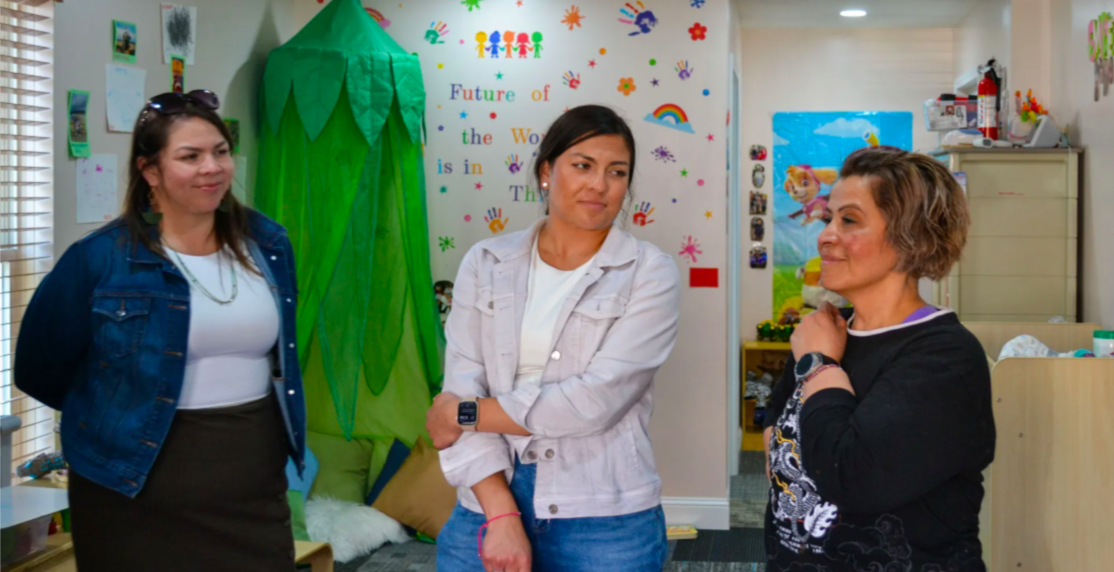However, MIECHV regulations for supporting English learners and their families are not as specific as other federal programs. Funding has also stagnated since 2013, and experts estimate that only 140,000 families, about 3 to 5 percent of those eligible, are actually receiving services.
How states are using federal funds
Colorado
Providers Advancing School Outcomes (PASO) is a 120-hour intensive course that trains informal caregivers to become early childhood educators. The program is targeted at Hispanic families, and offers courses in Spanish.
Developed by the Colorado Statewide Parent Coalition in 2006, PASO has advocated for a handful of bills within Colorado state legislature, including property tax exemptions for child care centers, a stipend for early childhood educators in training and work-based learning programs.
California
Creciendo Juntos, launched by the Mexican American Opportunity Foundation, supports the “holistic development of Latino families in California” and helps aspiring providers in Los Angeles County by reimbursing them for medical training and certification fees. The organization, whose name means “growing together,” also provides centers with bedding, toys and other early child care fundamentals.
State-level plans for preschool development grants
Five states plan to spend preschool development grant funding on recruiting and retaining multilingual child care providers and educators, according to the BUILD Initiative.
- Idaho plans to recruit and support Spanish-speaking providers to start, expand and maintain home-based child care programs in rural areas with a high population of Latino families. The state also plans to pair this initiative with the local Child Care Resource and Referral agencies, increasing support of current home-based providers through training and networking opportunities.
- Illinois will implement a standardized process to identify English learners via a home language survey and screening. It also proposed increasing compensation for bilingual early childhood educators.
- Mississippi will grant bonuses for programs that employ educators who are fluent in languages other than English and pay for monthly bonuses to providers serving families with limited English proficiency.
- Ohio plans to support informal and unlicensed home-based child care programs through the ESCALERAS program, which, as of October 2022, was helping 36 providers receive their license. Ohio projects the program will expand to serve 63 providers by June 2025.
- Virginia will expand its Fast Track program, which recruits and trains emerging early childhood educators, to offer training materials in Spanish.
This story about daycare in Spanish was produced by The Hechinger Report, a nonprofit, independent news organization focused on inequality and innovation in education.



